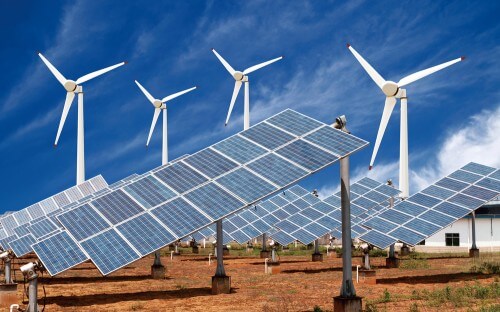A group of 53 leading international companies - including BMW, Coca Cola (in Western Europe), IKEA, Johnson & Johnson, Nike, Google and Microsoft - have committed to switch to using 100% renewable energy. Since the private sector is responsible for about 50% of the world's electricity consumption, such a movement has great significance

Dr. Daniel Mader, Angle - news agency for science and the environment
The Paris Climate Change Conference closed on December 12, 2015 with the announcement that the climate agreement reached is a historic turning point in the global response to the crisis of greenhouse gas emissions and climate change. There is no doubt that this is a rare agreement because the overwhelming majority of countries in the world signed it.
In 1992 it was introduced Montreal Protocol in which 183 countries pledged to reduce emissions of substances that increase the hole in the ozone. It was a historic agreement at the time, and there is no doubt that just as then it is also today - between the agreement reached in Paris and its implementation on the ground, the distance is still great. It is enough to take a look at the Israeli plan to reduce greenhouse gas emissions that was approved by the government and presented at the conference to understand this. If all the countries of the world were to implement a program like ours, not only would we not reduce the emissions of greenhouse gases in the world, but their amount would even increase. It is enough to recall that the previous plan to reduce greenhouse gas emissions to which Israel committed in the past was canceled by the government in 2013, so that we understand that even the implementation of this modest plan is questionable. Of course there is Countries that take the issue seriously, but it is still too little.
Maybe a stronger push in the field will come from the private sector? A group of 53 leading international companies - including BMW, Coca Cola (in Western Europe), IKEA, Johnson & Johnson, Nike, Google and Microsoft - have committed to move use 100% renewable energy. Since the private sector is responsible for about 50% of the world's electricity consumption, such a movement has great significance.
When these 53 companies switch to renewable energies, they will create a demand for 90 terawatt hours (TWh) of electricity, equivalent to 1% of global private sector electricity consumption. If the thousand leading companies in the world join them, almost 20% of electricity consumption in the private sector will come from renewable sources (almost 10% of global electricity consumption!).
The commitment of these powerful companies to transition to renewable energies will accelerate the establishment of facilities for their production and will even accelerate research in the field. On the other hand, it will reduce the demand for fossil fuels and ultimately lower the legitimacy of their use.
Unilever, for example, aims to switch to 100% renewable energy use by 2030, Coca-Cola (Western Europe) and the investment bank Goldman Sachs (notoriously remembered from the last global economic crisis) commit to switch to 100% renewable energy by 2020, while Microsoft Already consuming 100% renewable energies since 2014.
When you add this initiative At the request of the major banks in the USA To transition to a carbon-free economy and to finance research projects to reduce greenhouse gas emissions by private entities, it seems that what the states are not yet implementing, the private sector is starting to implement, and in a big way.

2 תגובות
In Germany, the subsidy of photovoltaic cells means that in July and August they have 78% of their electricity renewable energy. But this achievement resulted in a significant reduction of the competitiveness and economic viability of the other power plants, to the point of unviability of some of them. As a result, pressure groups are created on the government, that in the long run, renewable energy is not that cheap, because if there is no half-hourly energy exchange (which determines many types of fuel), there will not be a stable supply to the electricity grid. At the last electricity conference 2015 which is on 2-4.12.15 in Israel, there was a lecture by Dr. from Germany on the subject.
The renewable energy shows a trend that at the end of the process is not yet there, perhaps more/probably all/part of the power plants, and will create a microgrid: a local electricity network that feeds itself and stores the energy in batteries for later use.
The business is probably profitable - otherwise it makes no sense for a corporation of so many companies as described in the article to come together to implement it. There are no philanthropists here.
The energy of the Chinese laborer will be renewed every day through rice paddies grown in the sunlight and watered by the monsoon floodwaters. Everything is renewable energy. All that is missing is the Charlie Chaplin of the 21st century who will come and do it for fun.